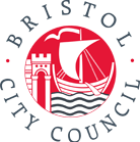Successes of the Sexual Health Improvement for Population and Patients HIT in 2016-17
Professor John Macleod and Thara Raj look back over the work of the Sexual Health Improvement for Population and Patients (SHIPP) HIT during 2016-17. SHIPP works to promote evidence based sexual health improvement.
- 11th May 2017
Professor John Macleod and Thara Raj look back over the work of the Sexual Health Improvement for Population and Patients Health Integration Team during 2016-17.
The Sexual Health Improvement for Population and Patients Health Integration Team (SHIPP HIT) works to promote evidence based sexual health improvement.
Our focus of the last 12 months has been to support the commissioning of a new integrated sexual health service across Bristol, North Somerset and South Gloucestershire (BNSSG). We have provided commissioners with cost effective evidence based advice that has underpinned the procurement process. In November 2016 the contract to provide the new service was awarded to Unity Sexual Health, a coalition involving Bristol Sexual Health Centre, the specialist service provided by University Hospitals Bristol NHS Foundation Trust, and all major third sector providers.
Primary care is not part of this new service. However, SHIPP has worked with Clinical Commissioning Groups (CCGs) and One Care, a practice consortium aiming to improve GP access and integrated care across BNSSG, alongside Unity, to promote system wide, integrated, evidence based sexual health services. SHIPP will contribute both to the governing senate of Unity and play a leading role in its evaluation working group.
SHIPP’s leadership in research and service innovation helped champion a number of research projects in the past year.
IMPACT-PC is an alternative care pathway for chlamydia and gonorrhoea. It offers patients who have had a test in a GP practice the option for telephone-based management by a centralised team of specialist nurses. Following our successful pilot of this intervention we submitted a £1 million funding application for a full evaluation to the National Institute for Health Research (NIHR). We successfully negotiated the first stage of the application process and were invited to submit a full bid which received very positive peer review. Despite this we heard in late February that, disappointingly, our bid was unsuccessful.
However, Unity Sexual Health are committed to the roll out of IMPACT-PC across BNSSG. They also recognise that robust evaluation is essential. We are discussing with partners including NIHR CLAHRC West and the Health Protection Research Unit how we can achieve robust evaluation within a constrained budget.
Jane Meyrick has continued to lead SHIPP’s innovative work on patient and public involvement, including work with both Out Bristol and the Creative Youth Network on our plans for implementation and evaluation of IMPACT-PC. Jane is preparing an NIHR Research for Patient Benefit grant application on finding ways to use collated patient experience in sexual health service development.
Following our serious incident audit of very late HIV diagnosis, Mark Gompels, Margaret May, Charlotte Davies and others have mapped HIV prevalence at GP level. This has informed selecting GP practices for training and piloting of screening all new patients. The team gave 19 high HIV prevalence GP practices education sessions aimed at increasing HIV testing. The effects of this training are being evaluated. Our pilot trial of HIV screening of new patients in six GP practices will start in 2017.
Our health economics lead Katy Turner is investigating the potential of point of care diagnostic tests on improving patient management of sexually transmitted infections and to control antimicrobial resistant gonorrhoea. This includes a working paper in the O’Neill Commission report on antimicrobial resistance. Unity Sexual Health are planning to implement point of care tests for chlamydia and gonorrhoea.
The work led by Professor Gene Feder on domestic violence and abuse has won support from two NIHR programme grants. The IRIS training intervention to help health professionals recognise and respond to intimate partner violence is being implemented and evaluated in practices across BNSSG and in local sexual health clinics.
Following a successful application to the 2016 NIHR CLAHRC West research proposal call, IRIS is being piloted in local pharmacies, which dispense emergency contraception.
This exemplar work from Bristol has led to the IRIS model being adopted both nationally and internationally. Gene and colleagues were shortlisted for the 2016 BMJ ‘Innovation into Practice’ award and he was awarded an OBE in the 2017 New Year Honours.






